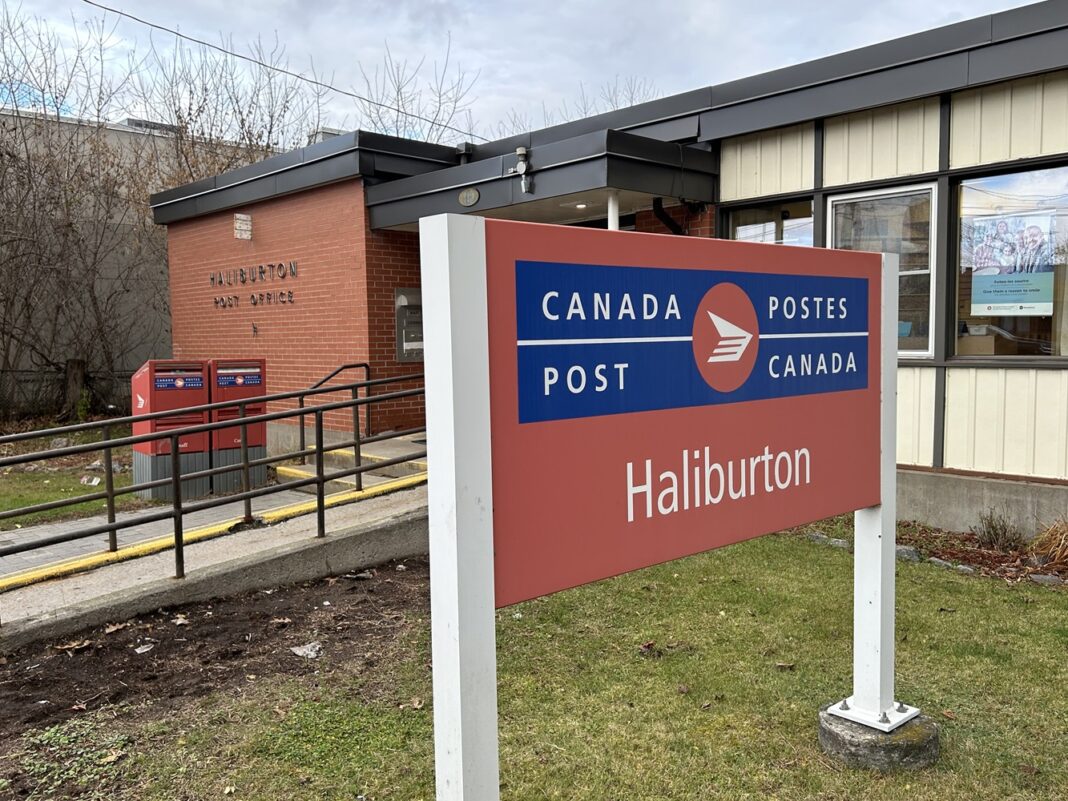Highlands-based Canada Post delivery personnel are disappointed to have been mandated back to work, says Doug Ford, president of the Canadian Union of Postal Workers (CUPW) local 564 covering Haliburton County.
Workers returned to their usual routes Dec. 17 after spending a month on the picket line lobbying for wage increases, greater job protection, and pay equity for new employees.
Approximately 95 per cent of CUPW’s 55,000 unionized workers Canada-wide supported the strike action, walking off the job Nov. 15. Most had been working without a contract since Dec. 31, 2023.
“It’s our opinion that Canada Post negotiated in bad faith waiting for the government to intervene – that’s how everybody feels,” Ford said. “Our union made some fairly significant concessions in the last week to try and get a deal, but Canada Post outright refused. It’s apparent to us that this was their game plan since the beginning.
“Workers have a right to collectively negotiate. Once again, it’s been taken away by the government… workers are disappointed, because they’ve all stuck together this past month. They wanted a negotiated settlement,” he added.
The Canada Industrial Relations Board (CIRB) stepped in Dec. 15, noting negotiations between the union and Crown corporation were at an impasse following two days of hearings over the weekend. Federal labour minister Steven MacKinnon, on Dec. 13, directed CIRB to order all employees back to work if it didn’t think a deal was doable before the end of the year.
Unionized members will work under the terms of their expired deal until May 22, though will receive a five per cent wage increase retroactive to the day after collective agreements expired – Dec. 31 for rural and suburban carriers and Jan. 31, 2024 for the urban unit.
Canada Post said the wage increase and retroactive payment will be made by Jan. 31, 2025, though all regularly contracted employees will receive $1,000 before Christmas, with temporary employees getting $500.
“We look forward to welcoming our employees back to work and serving the millions of Canadians and businesses who rely on our services,” Canada Post said in a statement Dec. 15. “Our commitment has always been to reach negotiated agreements that would help us better serve the changing needs of Canadians. We remain committed to doing so within this new process.”
Ford noted most media outlets were reporting a return to work before the union agreed to the CIRB directive. Officials signed off on the mandate the evening of Dec. 16, though Ford said CUPW will be challenging the order in court.
“In defence of our position, we have court victories that show what’s happening is illegal. It’s always the same thing – one rule for me and another for the government. It shouldn’t be that way. Nobody should be above a court ruling from the Supreme Court, but that’s what’s happened,” Ford said. “This is the government bailing out Canada Post.”
The company said workers will begin processing mail and parcels that have been trapped in the system the past four-and-ahalf weeks. New domestic mail outs won’t be accepted until Dec. 19, with international deliveries resuming Dec. 23.
Service guarantees are temporarily suspended, with Canada Post telling the public to expect delays through the remainder of 2024 and into the new year.
Ford said he’s concerned that, by implementing a temporary contract, the government is kicking the can down the road.
He said the two negotiating parties remain far apart on key details surrounding a new seven-day delivery cycle and pay.
Canada Post wants to use part-time relief workers to fill weekend routes, rather than full-time employees, and has offered to increase wages 12.5 per cent. Ford said last he heard the union was asking for an extra 19.5 per cent.
“Now our workers are going back, they’re doing it not knowing things are settled. They’re wondering what’s going to happen after this time out. This is something unprecedented – we still don’t know what’s going to happen in May. Nobody wants to see another disruption,” Ford said.





